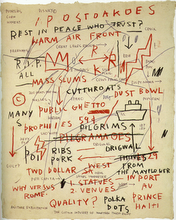“Electronic texts could turn into a reality the old but never fulfilled fantasy of complete knowledge. Like the library of Alexandria, they promise the universal availability of all texts ever written, of all books ever published”( Origgi 6).
What are the risks then of a realized digital updated version of the Library of Alexandria accessible by all people? In an interview with Gloria Origgi, editor of text-e, Eco explains what he believes is the “primary metaphysical risk” of the unsystematic filtering process which the Web’s content undergoes by its readers. Eco believes that because each reader brings with them their criteria and purposes for reading, “we’ll end up with a civilization in which every person has his own system of filters, in other words where every person creates his own encyclopedia. Now a society with five billion concurrent encyclopedias is a society in which there is no more communication” (origgi 179). Could this be the greatest risk we run in creating a publicly accessible e-library which contains an updated catalogue of “complete knowledge”? While the library itself, and the volumes contained within it, would be a globally collaborative social effort, would the use of its contents become a completely individualized and isolating activity? How could a system of standardized filters, for content authority and publisher validity, be developed for Web based texts which would not discriminate against those writers with little or no official credibility but who possess valid and useful content that would enrich the universal library? What does it mean to "enrich" the library? Who would determine this?
Monday, February 26, 2007
Subscribe to:
Post Comments (Atom)

No comments:
Post a Comment